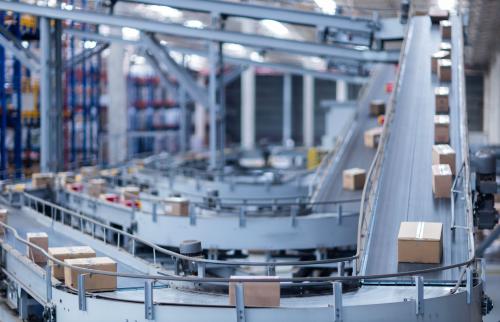Content from the Brookings Institution India Center is now archived. After seven years of an impactful partnership, as of September 11, 2020, Brookings India is now the Centre for Social and Economic Progress, an independent public policy institution based in India.
Dr. Shamika Ravi (Senior Fellow, Brookings India) and Dr. Eswar Prasad (Senior Fellow, Brookings Institution) participated in a debate about the demonetisation issue in India.
Dr. Ravi responded to comments on inflation and interest rates:
There is a problem of an information void within which estimates are being made, including the government unfortunately, Dr Ravi said during a panel discussion on demonetisation on CNBC-TV18. Given the magnitude of black money, and the way business is done in this country, tax evasion is a way of life, she said. Transforming a cash economy into a formal, mobile, electronic payment economy…a modern financial economy will require a lot of such moves. But a surgical strike does not have to be one weapon, she said. There has been demonetisation but it’s been two weeks, and we are yet to hear whether there will be any serious banking governance reform, for instance. Now that the banks are sitting with all its cash, Dr. Ravi raised the question of whether all the banks really deserve to have all these deposits of all ordinary citizens.
Secondly, there is nothing on taxation reforms, she said. There is a reason that some sectors are so cash rich. When there is talk about real estate, everyone is expecting a correction, particularly because this is a sector where a lot of black money has been parked. But these are theoretical arguments, she said. Disinflationary pressures on the economy is a theoretical discussion made. When cash goes out of circulation then naturally, sectors that are cash rich will see a price decline. However, she was surprised at the lack of information. The RBI or the Finance Ministry needs to give updates on what is happening. How many ATMs have been recalibrated, for example.
Dr. Ravi stated that she thinks lending rates are going to fall. Largely, she has seen a leftward shift, a money supply fall. And there is reason to believe that if a transformation is made towards a more plastic, a more mobile world, stakeholders need to get their act together. A lot of such transactions are formalised. The demand for cash should also fall. Dr. Ravi stated that she senses demand for cash is going to fall, much more than the amount of cash that has been destroyed in this process. If that happens, the real interest rates should fall. There is a reason to believe then that there is a future stimulus to growth in India.
She added that there was a definitiveness about Prime Minister Modi’s announcements about demonetisation. That’s part of the reason why one can still see widespread faith; people have generally been quite cooperative in this entire process. But two weeks is a long enough time. The definitiveness or decisiveness of the initial announcement has to be followed up by decisiveness of announcements, and there are exemptions or rules from every Ministry. Cash has affected all walks of life, it is not just agriculture. But the informal sector is very large, and is essentially cash dependent. The issue is that in two weeks, it would be nice to see more decisiveness in terms of moving forward. What are the specific policies that one is going to see, for this entire transformation to happen? One should have seen polio-like camps, the vaccine camps. One should know how much of currency has been pumped back in. That renews people’s faith.
But eventually, wherever there are illegal activities, that are essentially carried out by cash – whether it is insurgency, terrorism, kidnapping or any form of illegal activities, which are all cash dependent – one will see a decline. It’s not just J&K. It could even be parts of the North-East of India. One should see a lot of deposits coming in because these are economies which are flushed with cash.
Some points by Dr. Ravi that were displayed on the show:
- “Move will make illegal activities costly”.
- “Scaling back large bills will not end crime”.
- “Demonetisation will force underground economy to employ riskier methods”.
- “Jan Dhan Yojana has reduced need for honest people to stash cash”.
- “Should aim to go less-cash not cash-less”.
- “Removal of large bills will make illegal activities costly”.
Dr. Eswar Prasad, Senior Fellow at the Brookings Institution, provided the following comments:
In the short run, clearly it is not a big positive but a significant negative in many ways. But in the long run, this is going to be good for India. Having taken this bold move, is there going to be a follow through in terms of what needs to be done on the ground, which is changing the incentive system. This involves a) taking government out of the economy where it does not really have a place; and b) trying to change the basic incentives that many public servants face, in terms of their dealing with temptations for corruption.
Taking any monetary policy or fiscal policy action in order to deal with the turmoil in the market right now would not be a well advice. Certainly this turmoil continues for another couple of weeks or so. Then things start to settle down, after which the narrative begins to change. Then he thinks, there could be more serious consequences for the economy. But right now, one can well see inflation, if anything, getting dampened because some of the money has been taken out of the system. Certainly demand for high-end luxury products and real estate would be declining as a consequence of this move. If anything, dampening of inflation could give the RBI some room to move.
This debate was first aired on the programme ‘Cash Clean-up’ (CNBC-TV18), posted online on November 22, 2016. The views are of the discussant(s). Brookings India does not have any institutional views.
The Brookings Institution is committed to quality, independence, and impact.
We are supported by a diverse array of funders. In line with our values and policies, each Brookings publication represents the sole views of its author(s).



Commentary
Op-edDemonetisation: Effect on interest rates, inflation and policy action
CNBC-TV18
November 24, 2016